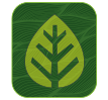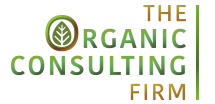Organic Terminology
Accreditation
A determination made by the Secretary that authorizes a private, foreign, or State entity to conduct certification activities as a certifying agent under this part.
ANSI
American National Standards – is a private non-profit organization that oversees the development of voluntary consensus standards for products, services, processes, systems, and personnel in the United States. The organization also coordinates U.S. standards with international standards so that American products can be used worldwide.
Audit trail
Documentation that is sufficient to determine the source, transfer of ownership, and transportation of any agricultural product labeled as “100 percent organic,” the organic ingredients of any agricultural product labeled as “organic” or “made with organic (specified ingredients)” or the organic ingredients of any agricultural product containing less than 70 percent organic ingredients identified as organic in an ingredients statement.
CARTV
was set up by the Government of Quebec on November 6, 2006, pursuant to the Act Respecting Reserved Designations and Added-Value Claims (L.R.Q., chapitre A-2-.03). The object of this Act is to protect the authenticity of products and of terms used to identify and promote them, through product certification based on origins or on special characteristics associated with a production method or specificity.
Certificate
Issued by a certifier when you have shown compliance with the standard.
Certified Organic
Certified Organic indicates the agricultural or processed food product is verified by an accredited certifying agency to be compliant with the National Organic Program. Verification includes annual onsite inspections of farms, and processing plants.
Certifying agent
Any entity accredited by the Secretary as a certifying agent for the purpose of certifying a production or handling operation as a certified production or handling operation.
Certification or certified
A determination made by a certifying agent that a production or handling operation is in compliance with the Act and the regulations in this part, which is documented by a certificate of organic operation.
Certified operation
A crop or livestock production, wild-crop harvesting or handling operation, or portion of such operation that is certified by an accredited certifying agent as utilizing a system of organic production or handling as described by the Act and the regulations in this part.
Crop
A plant or part of a plant intended to be marketed as an agricultural product or fed to livestock.
EU
European Union
European Union Regulations
EU member states follow European Union Council Regulation EEC 834/2007 Article 33 for organic agriculture. Each member state has a national law that conforms to the regulation and a competent authority responsible for implementation. Once in the EU, imported product has free movement within the borders. Also, the EU recognizes a number of countries outside the EU as having equivalent organic regulations, including the US, Australia, Argentina, and Israel. Products shipped to these countries and processed also need to meet EU regulations.
Excluded methods
A variety of methods used to genetically modify organisms or influence their growth and development by means that are not possible under natural conditions or processes and are not considered compatible with organic production. Such methods include cell fusion, micro encapsulation and macro encapsulation, and recombinant DNA technology (including gene deletion, gene doubling, introducing a foreign gene, and changing the positions of genes when achieved by recombinant DNA technology). Such methods do not include the use of traditional breeding, conjugation, fermentation, hybridization, in vitro fertilization, or tissue culture.
Global Organic Standards
Exporting to other global markets may require certification to standards regulated by other countries.
GRAS
Generally Recognized as Safe.
Handler
Any person engaged in the business of handling agricultural products, including producers who handle crops or livestock of their own production, except such term shall not include final retailers of agricultural products that do not process agricultural products.
Handling operation
Any operation or portion of an operation (except final retailers of agricultural products that do not process agricultural products) that receives or otherwise acquires agricultural products and processes, packages, or stores such products.
IFOAM
The International Federation of Organic Agriculture Movements (IFOAM) is a non-governmental organization that has established a set of Basic Standards. IFOAM has contracted with the International Organic Accreditation Service (IOAS) to accredit certifiers to these voluntary standards. Several large retailers in Europe rely on the IFOAM standards and IOAS accreditation as the basis for their certification rather than any particular national standard.
Ingredient
Any substance used in the preparation of an agricultural product that is still present in the final commercial product as consumed.
Ingredient Verification
For organic ingredients, an organic certificate verifying compliance to the appropriate standards needs to be on file. For non-organic ingredients, verification that the ingredient is listed on the National List and that the ingredients were produced without the use of Excluded methods or Prohibited substances, and not Commercially available when applicable.
Inspection
The act of examining and evaluating the production or handling operation of an applicant for certification or certified operation to determine compliance with the Act and the regulations in this part.
Inspector
Any person retained or used by a certifying agent to conduct inspections of certification applicants or certified production or handling operations.
JAS
Japanese Agricultural Standard.
Japanese Agricultural Standards
The Japanese Ministry of Agriculture, Fisheries, and Forestry established the Japanese Agricultural Standard (JAS) to accredit certifiers and enforce organic labeling laws. The Japanese government and U.S. have established an equivalency arrangement for the trade in products labeled organic with a few specific exceptions. However, some buyers still insist on full JAS compliance rather than accept equivalence. Formulation: quantities and the sources of ingredients used to make a product.
Livestock
Any cattle, sheep, goat, swine, poultry, or equine animals used for food or in the production of food, fiber, feed, or other agricultural-based consumer products; wild or domesticated game; or other non-plant life, except such term shall not include aquatic animals or bees for the production of food, fiber, feed, or other agricultural-based consumer products.
National List
A list of allowed and prohibited substances as provided for in the Act.
National Organic Program (NOP)
The program authorized by the Act for the purpose of implementing its provisions. In order to call your products organic, you must be certified organic to the NOP standards, which were written to enforce the Organic Food Products Act of 1990.
Nonagricultural substance
A substance that is not a product of agriculture, such as a mineral or a bacterial culture, that is used as an ingredient in an agricultural product. For the purposes of this part, a nonagricultural ingredient also includes any substance, such as gums, citric acid, or pectin, that is extracted from, isolated from, or a fraction of an agricultural product so that the identity of the agricultural product is unrecognizable in the extract, isolate, or fraction.
Non-synthetic (natural)
A substance that is derived from mineral, plant, or animal matter and does not undergo a synthetic process as defined in section 6502(21) of the Act (7 U.S.C. 6502(21)). For the purposes of this part, non-synthetic is used as a synonym for natural as the term is used in the Act.
NSF ANSI 305
This is the standard used in the US for organic personal care products.
OFPA
Organic Foods Production Act of 1990, the U.S. federal law that defines the term organic and it’s use.
Organic
A labeling term that refers to an agricultural product produced in accordance with the Act and the regulations in this part.
Organic production
A production system that is managed in accordance with the Act and regulations in this part to respond to site-specific conditions by integrating cultural, biological, and mechanical practices that foster cycling of resources, promote ecological balance, and conserve biodiversity.
Organic system plan
A plan of management of an organic production or handling operation that has been agreed to by the producer or handler and the certifying agent and that includes written plans concerning all aspects of agricultural production or handling described in the Act and the regulations in subpart C of this part.
Personal Care Products
Including, but not limited to, cosmetics, fragrances, lotions, lip balms, shampoos, conditioners, and deodorants.
Practice standard
The guidelines and requirements through which a production or handling operation implements a required component of its production or handling organic system plan. A practice standard includes a series of allowed and prohibited actions, materials, and conditions to establish a minimum level performance for planning, conducting, and maintaining a function, such as livestock health care or facility pest management, essential to an organic operation.
Processing
Cooking, baking, curing, heating, drying, mixing, grinding, churning, separating, extracting, slaughtering, cutting, fermenting, distilling, eviscerating, preserving, dehydrating, freezing, chilling, or otherwise manufacturing and includes the packaging, canning, jarring, or otherwise enclosing food in a container.
Processing aid
(a) substance that is added to a food during the processing of such food but is removed in some manner from the food before it is packaged in its finished form; (b) a substance that is added to a food during processing, is converted into constituents normally present in the food, and does not significantly increase the amount of the constituents naturally found in the food; and (c) a substance that is added to a food for its technical or functional effect in the processing but is present in the finished food at insignificant levels and does not have any technical or functional effect in that food.
Producer
A person who engages in the business of growing or producing food, fiber, feed, and other agricultural-based consumer products.
Prohibited
the status of materials that may not be used in organic production, processing, or handling.
Prohibited substance
A substance the use of which in any aspect of organic production or handling is prohibited or not provided for in the Act or the regulations of this part.
Records
Any information in written, visual, or electronic form that documents the activities undertaken by a producer, handler, or certifying agent to comply with the Act and regulations in this part.
Sewage sludge
A solid, semisolid, or liquid residue generated during the treatment of domestic sewage in a treatment works. Sewage sludge includes but is not limited to: domestic septage; scum or solids removed in primary, secondary, or advanced wastewater treatment processes; and a material derived from sewage sludge. Sewage sludge does not include ash generated during the firing of sewage sludge in a sewage sludge incinerator or grit and screenings generated during preliminary treatment of domestic sewage in a treatment works.
Split operation
An operation that produces or handles both organic and nonorganic agricultural products.
Source documentation
record of an ingredients origin. Examples are invoices and bills of lading.
State organic program (SOP)
A State program that meets the requirements of section 6506 of the Act, is approved by the Secretary, and is designed to ensure that a product that is sold or labeled as organically produced under the Act is produced and handled using organic methods. State organic program’s governing State official. The chief executive official of a State or, in the case of a State that provides for the statewide election of an official to be responsible solely for the administration of the agricultural operations of the State, such official who administers a State organic certification program.
Synthetic
A substance that is formulated or manufactured by a chemical process or by a process that chemically changes a substance extracted from naturally occurring plant, animal, or mineral sources, except that such term shall not apply to substances created by naturally occurring biological processes.
USDA
United States Department of Agriculture.

